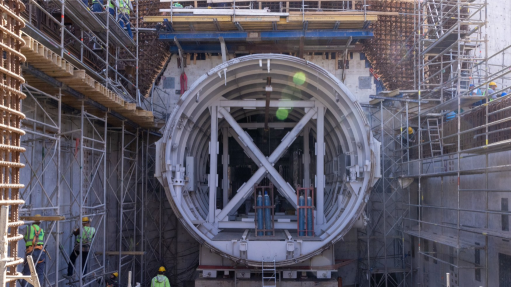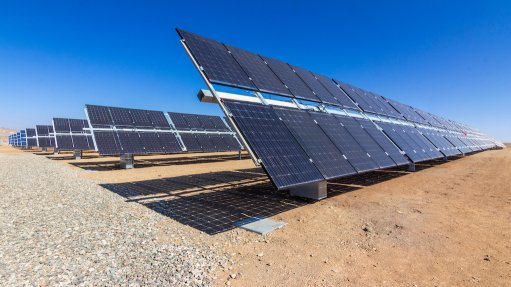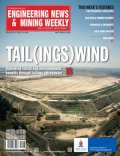Pollution prevention plans worthy of prompt attention
By: Hamke Immink
The South African government is developing the climate change regulatory environment in line with the Paris Agreement. Regulations and guidelines published recently in terms of the Air Quality Act require companies to now draft pollution prevention plans how they will mitigate emission of gases that cause global warming and submit them by 21 December 2017. Hamke Immink explains why it is important for companies to submit these plans.
The legislative environment for companies operating in South Africa requires business owners to tick various boxes before they can operate legally. This is an administrative burden of seemingly endless paperwork that is inconvenient to everyone involved. However, the pollution prevention plans required for companies in 15 industrial sectors are vitally important and worthy of prompt attention. The future of our planet depends on governments and the private sector taking control of emissions that contribute to climate change.
Heavy rain and storms in some parts of the world and droughts in others over the past few weeks have illustrated that climate change is a threatening reality that will have a major influence on where and how people will live in the future. Anything we can do now to curtail greenhouse-gas (GHG) emissions and slow down climate change is important.
Therefore, it is good news that carbon dioxide (CO2), methane (CH4), nitrous oxide (N2O), hydrofluorocarbons (HFCs), perfluorocarbons (PFCs) and sulphur hexafluoride (SF6) have been declared priority pollutant GHGs. It is also a positive move that the regulations focus on particular industries that can make the biggest difference.
The regulations require companies involved in fossil-fuel-based electricity generation, underground coal mining, crude oil production and refining, natural gas production or processing and liquid fuel production from coal or gas, as well as the production of cement, glass, ammonia, nitric acid, carbon black, iron and steel, ferroalloys, aluminium, polymers, and pulp and paper to submit pollution prevention plans if their GHG emissions exceed 100 000 t/y. This threshold is 0.02% of South Africa’s GHG inventory in 2010.
The plans must indicate what companies are doing to reduce GHG emissions further. According to the regulations, a pollution prevention plan must include company details, a description of the production process, reported GHG emissions, total GHG emissions, details of the methodology and a description of the miti- gation measures and the projected emissions reductions that will be achieved.
The requirement for the submission of pollution prevention plans is aimed at reducing the emission of GHGs. Critics of this requirement point out that grid electricity and liquid fuels are the major sources of GHG emissions in the country and that a downturn in the economy reduces GHG emissions.
Process emissions are contributing significantly less to the national inventory, and reducing process-related GHG emissions would require significant investment in new technology. While it is true that many companies have already reduced GHG emissions through efficiency improvements, statutory measures such as the pollution prevention plans would assist in documenting possible reduction pathways in the various industrial sectors.
Working together on meeting the deadlines set by the regulations to submit pollution prevention plans will ensure the transition to a carbon tax that will follow soon. We all have to cooperate to meet the objective of being part of the Paris Climate Accord to limit GHG emissions.
The Minister must approve or reject pollu- tion prevention plans within 30 days. If a pollution prevention plan is rejected, the company must submit a revised plan. Progress reports must also be submitted to the Minister by March 31 each year and give information about mitigation measures, details of deviations and remedial action and the management of any risks and limitations.
The guidelines published for the development of pollution prevention plans advise companies on how to draw up the plans. It also emphasises that the Minister can insist on the verification of the information in the plan if the Minister reasonably believes that it is incomplete or false. Penalties for failing to submit a report include a steep penalty of R5-million or imprisonment.
However, companies should not be submitting pollution prevention plans simply to avoid a penalty; they should submit their plans for the sake of the environment and because it is the right thing to do.
Immink is an environmental engineer and director for Promethium Carbon, a carbon and climate change advisory company based in Johannesbrug
Comments
Press Office
Announcements
What's On
Subscribe to improve your user experience...
Option 1 (equivalent of R125 a month):
Receive a weekly copy of Creamer Media's Engineering News & Mining Weekly magazine
(print copy for those in South Africa and e-magazine for those outside of South Africa)
Receive daily email newsletters
Access to full search results
Access archive of magazine back copies
Access to Projects in Progress
Access to ONE Research Report of your choice in PDF format
Option 2 (equivalent of R375 a month):
All benefits from Option 1
PLUS
Access to Creamer Media's Research Channel Africa for ALL Research Reports, in PDF format, on various industrial and mining sectors
including Electricity; Water; Energy Transition; Hydrogen; Roads, Rail and Ports; Coal; Gold; Platinum; Battery Metals; etc.
Already a subscriber?
Forgotten your password?
Receive weekly copy of Creamer Media's Engineering News & Mining Weekly magazine (print copy for those in South Africa and e-magazine for those outside of South Africa)
➕
Recieve daily email newsletters
➕
Access to full search results
➕
Access archive of magazine back copies
➕
Access to Projects in Progress
➕
Access to ONE Research Report of your choice in PDF format
RESEARCH CHANNEL AFRICA
R4500 (equivalent of R375 a month)
SUBSCRIBEAll benefits from Option 1
➕
Access to Creamer Media's Research Channel Africa for ALL Research Reports on various industrial and mining sectors, in PDF format, including on:
Electricity
➕
Water
➕
Energy Transition
➕
Hydrogen
➕
Roads, Rail and Ports
➕
Coal
➕
Gold
➕
Platinum
➕
Battery Metals
➕
etc.
Receive all benefits from Option 1 or Option 2 delivered to numerous people at your company
➕
Multiple User names and Passwords for simultaneous log-ins
➕
Intranet integration access to all in your organisation


















